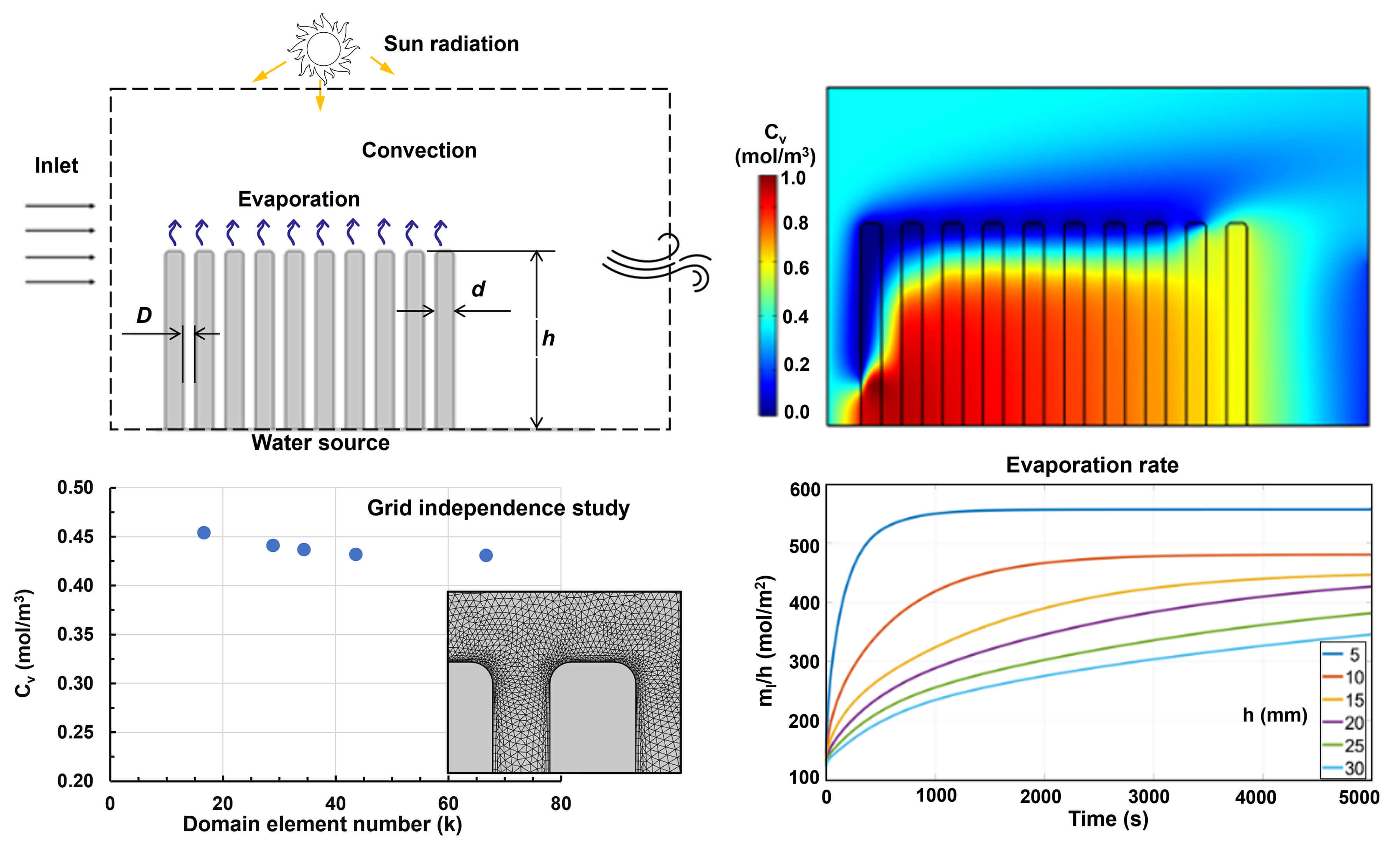 Open Access
Open Access
ARTICLE
Optimal Design of Porous Media in Solar Vapor Generators by Carbon Fiber Bundles
Department of Biomedical Engineering, University of Massachusetts, Lowell, MA, USA
* Corresponding Author: Jinxiang Xi. Email:
Frontiers in Heat and Mass Transfer 2023, 21, 65-79. https://doi.org/10.32604/fhmt.2023.042613
Received 06 June 2023; Accepted 14 August 2023; Issue published 30 November 2023
Abstract
As a means of harvesting solar energy for water treatment, solar-driven vapor generation is becoming more appealing. Due to their entangled fibrous networks and high surface area, fibers can be used as building blocks to generate water vapor. In this paper, using a two-dimensional fiber bundle model, we studied the generation of solar vapor based on the fiber height, distance between fibers, and input sun radiation. The performance of solar absorption system was also evaluated by evaluating thermal and water management. Results showed a constant increase in solar vapor generation with an increasing fiber height and decreasing inter-fiber distance. However, the gain rate of using taller and more densely packed fiber bundles dwindled quickly. On the other hand, a shorter fiber had a higher evaporation rate per fiber height. The distance between fibers had a nonlinear effect on the fiber bundle evaporation rate. A new fiber bundle design was recommended with a fiber height of 15–20 mm and an inter-fiber distance of 1.5 mm. The results of this study can provide guidelines for future fiber bundle designs with increased efficiency, reduced cost, and versatile applications (i.e., desalination, water purification, and power generation).Graphic Abstract

Keywords
Cite This Article
 Copyright © 2023 The Author(s). Published by Tech Science Press.
Copyright © 2023 The Author(s). Published by Tech Science Press.This work is licensed under a Creative Commons Attribution 4.0 International License , which permits unrestricted use, distribution, and reproduction in any medium, provided the original work is properly cited.


 Submit a Paper
Submit a Paper Propose a Special lssue
Propose a Special lssue View Full Text
View Full Text Download PDF
Download PDF Downloads
Downloads
 Citation Tools
Citation Tools